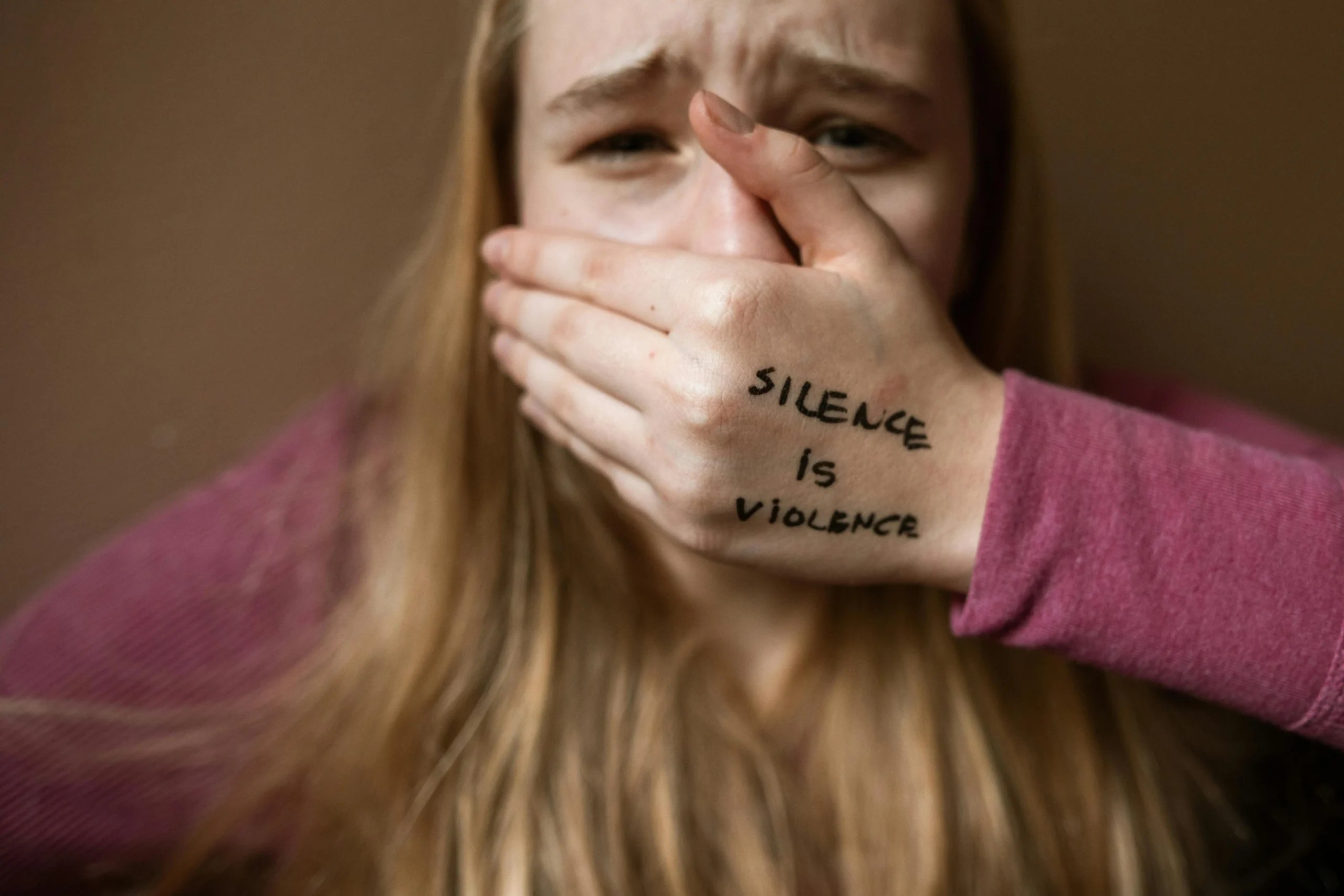Introduction: The Invisible Wounds of Emotional Abuse in Relationships
As someone who has seen how subtle emotional harm can destroy even the strongest people, I want to talk about something we don’t discuss enough, emotional abuse in relationships. It’s not always about shouting, slamming doors, or bruises. Sometimes, it’s the quiet withdrawal of love, the constant put-downs, or the way someone makes you question your own reality. This kind of abuse doesn’t show up in pictures, but it slowly tears apart your confidence, your mental health, and even your sense of identity.
Emotional abuse in relationships is a form of non-physical manipulation that chips away at your well-being over time. It thrives in silence and often hides behind a smile or sweet words that come after the storm. What makes it especially dangerous is how normalized it can become. People enduring it often don’t realize what’s happening—until it’s already done damage.
That’s why recognizing the signs early is so important. Whether you’re in a relationship now or looking back at a painful chapter in your life, this blog is for you. In the sections ahead, I’ll help you identify the signs of emotional abuse in a romantic relationship, explain how it works, explore the lasting psychological impact it can have, and offer realistic steps toward healing and safety.
We’ll also look at subtle emotional abuse, how it can affect your mental and physical health, and why so many people struggle to recognize it—even when it’s right in front of them. My goal is simple: to empower you with awareness, so no one has to feel trapped, isolated, or broken by something they can’t name.
What Is Emotional Abuse in Relationships?
At its core, emotional abuse in relationships is a pattern of behaviors designed to control, belittle, or manipulate a partner—without ever raising a hand. It’s sometimes referred to as psychological abuse and can be just as destructive, if not more so, than physical violence.
The tricky thing is, emotional abuse doesn’t always look the same. It might be someone constantly criticizing your choices, isolating you from loved ones, or using gaslighting to make you question your memory or sanity. It can start subtly: a joke at your expense, a sarcastic remark, or a jealous comment that seems sweet at first. Over time, these behaviors pile up, forming a toxic pattern that keeps you doubting yourself and feeling unworthy.
Unlike occasional disagreements that all couples go through, emotional abuse in relationships is about consistent control. One partner uses fear, guilt, or shame to dominate the other. And here’s what makes it harder to spot: the abuse often comes in cycles. After a hurtful episode, the abuser may suddenly become loving or apologetic, making the victim second-guess their own feelings. This cycle is sometimes called trauma bonding, where the highs and lows create an unhealthy attachment that feels impossible to break.
In many cases, victims don’t even realize they’re being abused. That’s especially true when emotional abuse vs toxic relationship: what’s the difference becomes blurred. Toxic relationships can have emotionally abusive traits, but emotional abuse is intentional and sustained—meant to wear you down. It’s not just a bad fight or a bad week; it’s a recurring pattern.
Over time, you may start to accept the behavior as “normal.” You tell yourself things like, “They’re just stressed,” or “It’s not that bad.” But deep down, something doesn’t feel right—and that intuition matters. That inner voice deserves to be heard.
In the next section, we’ll dive into the red flags and specific signs of emotional abuse in a romantic relationship. These signs may be loud and obvious, or whisper-quiet—but either way, they matter. You matter.
10 Major Signs of Emotional Abuse in Relationships You Shouldn’t Ignore
Recognizing emotional abuse in relationships often starts by identifying patterns that may seem subtle at first but build up over time. These red flags aren’t just warning signs—they’re signals that your emotional safety is under attack. I’ve seen people, including myself, dismiss these behaviors far too often. But once you know what to look for, it becomes harder to unsee.
Let’s walk through 10 common signs that could indicate you—or someone you love—is experiencing emotional abuse in a relationship.
1. Verbal Assaults and Name-Calling in Relationships
When your partner constantly criticizes you, belittles your accomplishments, or calls you names during arguments—or even casually—it’s not just mean-spirited behavior. It’s verbal abuse. Over time, this wears down your self-worth and can lead to low self-esteem and self-doubt, one of the most common outcomes of emotional abuse in relationships.
2. Public Humiliation and Emotional Abuse
Has your partner ever made jokes at your expense in front of others, shared something deeply personal to embarrass you, or rolled their eyes when you spoke? Public humiliation is often dismissed as “playful teasing,” but when it’s constant and makes you feel small, it becomes a form of emotional abuse in a romantic relationship.
3. Gaslighting: A Dangerous Tool of Emotional Abuse in Relationships
Gaslighting is one of the most insidious tactics of emotional abuse. It makes you question your reality. Your partner might say things like, “You’re imagining it,” or “You’re too sensitive,” after clearly hurtful moments. Eventually, you may feel like you can’t trust your own memory. This manipulation leads to emotional exhaustion and confusion, keeping you stuck in the cycle.
4. Isolation from Support Systems in Emotionally Abusive Relationships
If your partner gets uncomfortable or angry when you spend time with family or friends—or tries to convince you that “they’re bad for you”—this is a huge red flag. Isolation is a control tactic. Over time, you may feel like you have nowhere to turn. This deepens dependence on the abuser and prevents healthy outside perspectives.
5. Jealousy and Possessiveness: Signs of Emotional Abuse
A little jealousy can feel flattering. But if it turns into accusations, stalking your social media, or controlling who you talk to, it’s not love—it’s control. Extreme jealousy and possessiveness are classic indicators of emotional abuse in relationships, often disguised as concern.
6. Controlling Behaviors and Emotional Abuse in Relationships
Control doesn’t always show up as commands. Sometimes, it’s subtle: dictating what you wear, how you speak, or what you post. Other times, it’s financial—limiting your access to money or important documents. This kind of control is at the heart of emotional abuse in relationships.

7. Withholding Affection or Approval to Punish You
When affection is used as a weapon, it can be devastating. Abusers may give you the silent treatment, withhold love or intimacy, or only show you approval when you meet their demands. This conditional love damages your sense of worth and makes you feel like you’re always walking on eggshells.
8. Manipulation and Guilt-Tripping in Emotionally Abusive Relationships
Do you constantly feel guilty—even when you’ve done nothing wrong? Manipulation and emotional blackmail are key tactics in emotionally abusive dynamics. Your partner might twist events, blame you for their bad mood, or make you feel selfish for standing up for yourself. This leads to codependency, where you start ignoring your own needs.
9. Intimidation and Threats: The Silent Fear in Emotional Abuse
Even when there’s no physical violence, threats can be terrifying. A partner might threaten to hurt themselves, sabotage your career, or take away your children. Sometimes, the threats are unspoken—just a look or tone. But the fear is real. Living in this kind of fear is a sign that you’re not just in a bad relationship—you’re in a psychologically abusive one.
10. Blame-Shifting and Deflection in Emotionally Abusive Relationships
In healthy relationships, both people take accountability. In emotionally abusive relationships, the blame is always on you. They’ll say things like, “You made me do this,” or “If you weren’t so difficult, I wouldn’t act this way.” This deflection of responsibility traps you in guilt, and that guilt keeps you silent.
Subtle Forms of Emotional Abuse in Relationships That Often Go Undetected
Not all emotional abuse in relationships is loud or obvious. Some of the most damaging behavior is the kind you can’t name until much later—after the harm is done. Subtle abuse makes you question if you’re overreacting. But these quiet tactics are just as harmful as screaming matches or public shame.
1. Denial, Minimization, and Rewriting the Past
You bring up a hurtful moment, and your partner says, “That never happened,” or “You’re making a big deal out of nothing.” Over time, denying or minimizing events makes you question your memory and emotions. It’s a textbook gaslighting technique used in emotional abuse in relationships.
2. Using Addiction or Mental Health as a Weapon
Sometimes, abusers deflect blame by saying, “I was drunk,” or “I have anxiety—you should be more understanding.” While mental health struggles are real, they should never be used to justify manipulative behavior. Using addiction as an excuse enables the abuse to continue while keeping the victim emotionally trapped.
3. Emotional Servitude: The Unseen Labor in Abusive Relationships
If you’re constantly catering to your partner’s needs while yours are ignored, it’s not just selfishness—it’s emotional servitude. You may feel more like a caretaker or assistant than an equal partner. This imbalance fosters emotional abuse in relationships, especially when your needs are dismissed as “too much.”
4. Exaggerating Your Flaws and Passive-Aggressive Control
You make one mistake, and they won’t let you forget it. Or they’ll mock your vulnerabilities just enough to make you insecure, but not enough for others to notice. Flaw exaggeration is a tactic designed to make you feel like you’re always the problem. This form of subtle abuse can deeply damage your self-image over time.
How Emotional Abuse in Relationships Affects Mental, Social & Physical Health
When we talk about emotional abuse in relationships, the focus often stays on the hurtful words or manipulation. But what many don’t realize is the deep and damaging ripple effects it creates in a person’s mental, social, and physical well-being. The damage doesn’t just stay inside — it changes how we see ourselves, how we interact with others, and even how our bodies function over time.
A. Psychological Impact of Emotional Abuse in Relationships
One of the most immediate effects of emotional abuse is psychological distress. From my personal experience and the stories I’ve heard from others, emotional abuse in relationships often leads to anxiety, depression, self-doubt, and a fear of abandonment. Victims frequently second-guess their emotions, start to feel “crazy,” and lose trust in their own instincts. Read my blog on Relationship Anxiety.
Many survivors describe a sense of walking on eggshells, always unsure when the next emotional explosion might come. The constant manipulation and invalidation chips away at self-esteem until the person no longer recognizes who they are.
Research shows that emotional abuse in relationships significantly increases risks of depression, PTSD, and chronic anxiety symptoms. Read here.
B. Social & Behavioral Impact of Emotional Abuse
The damage doesn’t stop in the mind — it seeps into daily behavior and social circles. People enduring emotional abuse in relationships often become withdrawn. They start to isolate from friends and family, either by choice or because their partner pressures them to.
This isolation can lead to codependency, where the victim feels completely reliant on the abuser for validation and emotional survival. Over time, it becomes incredibly difficult to form healthy new relationships because trust has been shattered and boundaries feel blurry.
C. Physical Impact of Emotional Abuse in Relationships
Yes — emotional abuse affects the body too. When someone is under constant emotional stress, the body reacts. You may experience insomnia, chronic fatigue, headaches, or digestive issues without even realizing the root cause is emotional.
Studies have linked emotional trauma to long-term illnesses like fibromyalgia and autoimmune diseases. This connection between emotional abuse and physical symptoms is often overlooked, but very real.
Bold Reminder: If you’ve been struggling with chronic stress symptoms, don’t just treat the surface — consider whether emotional abuse might be the hidden source.

Why Victims Often Don’t Recognize Emotional Abuse in Relationships
You might wonder — why don’t people just leave? Why don’t they realize they’re being abused?
Normalization of Toxic Behavior
The truth is, when you’re in the thick of it, emotional abuse in relationships can become so normalized that it no longer feels like abuse. You tell yourself it’s just a rough patch, or that everyone fights like this.
Absence of Physical Evidence
Unlike physical abuse, there are no bruises or scars. And without physical proof, it’s easy to doubt your own pain — or have others dismiss it entirely.
Gaslighting and Emotional Confusion
Many abusers use gaslighting, a tactic that makes the victim question their reality. You’re told you’re “too sensitive” or “crazy” — until you start believing it. This emotional fog makes it nearly impossible to clearly identify what’s happening.
Societal Minimization of Emotional Harm
Society doesn’t talk enough about emotional abuse in relationships. We hear, “At least they didn’t hit you,” as if only physical violence counts. This mindset can keep victims trapped for years, convinced that what they’re going through isn’t “bad enough.”
Realization is powerful. Once you start naming the abuse for what it is, the healing can begin.
According to the CDC’s NISVS, nearly half of U.S. adults report experiencing psychological aggression in relationships, highlighting how widespread emotional abuse in relationships really is. Read here.
Breaking the Cycle: How to Escape Emotional Abuse in Relationships and Heal
Getting out of an emotionally abusive relationship isn’t easy — but it is absolutely possible. Healing begins with awareness and continues with support, boundaries, and inner rebuilding.
Acknowledge the Abuse: Education and Self-Awareness
The first step is recognizing that you’re being emotionally abused. I remember how hard it was to accept that love could feel so cruel. But naming the abuse gave me power. Educate yourself, journal your experiences, and trust your gut feelings.
Reach Out for Help: Family, Friends, Hotlines, Therapy
You’re not alone. Tell someone you trust. Whether it’s a friend, sibling, or therapist, sharing your story is a lifeline. Consider contacting resources like the National Domestic Violence Hotline or local support centers.
Important: If you’re wondering how to deal with emotional abuse from a partner, the first step is connection — not isolation.
Rebuild Your Life: Boundaries and Rediscovering Identity
Start reclaiming your power by setting firm boundaries. Say no. Take up hobbies you once loved. Rediscover who you are outside of the relationship. It’s a slow journey, but every small act of self-care is a step toward freedom.
Seek Trauma-Informed Professional Support
Therapists trained in emotional abuse recovery can help untangle the emotional trauma and guide you through healing. Look for someone experienced in trauma therapy or EMDR.
Therapy isn’t weakness — it’s a brave, proactive step toward rebuilding your life.
Prioritize Safety: Create an Exit Plan
If you’re planning to leave, especially if the abuser is controlling or threatening, create a safety plan. This includes:
- Having essential documents ready
- Storing emergency money
- Knowing where you’ll go
- Informing a trusted contact
Safety is your foundation. Once you’re physically and emotionally safe, healing can truly begin.
Conclusion: You Deserve Respect, Not Fear
Emotional abuse in relationships doesn’t always come with shouting or bruises. Sometimes, it shows up quietly—in the form of guilt, gaslighting, or persistent self-doubt. That’s what makes it so dangerous and, honestly, so heartbreaking. I’ve seen how it can slowly chip away at someone’s confidence until they no longer recognize themselves. And that’s why awareness matters so deeply.
If you’ve made it this far, I want to reaffirm one thing: you are not overreacting. The pain you feel is real. And healing from emotional abuse in relationships is not only possible—it’s your right. No matter how long you’ve been stuck in the cycle or how subtle the abuse has been, you deserve love that uplifts, not love that makes you question your worth.
I know it’s hard to admit the truth, especially when the signs are buried under years of emotional manipulation. But the first step is acknowledging it. The second is trusting your instincts. And the third is seeking support. Whether it’s a trusted friend, a therapist, or even just a support group online—you don’t have to go through this alone.
So here’s my final message: If you suspect you’re facing emotional abuse in relationships, listen to that voice in your head. Break the silence. Ask questions. Lean on those who love you. Recognizing signs of emotional abuse in your relationship could be the most powerful step you take toward reclaiming your peace.
You deserve respect. You deserve freedom. And you deserve to feel safe in love.

FAQs About Emotional Abuse in Relationships
Q1. What is emotional abuse in relationships?
A. Emotional abuse in relationships is a pattern of behavior where one partner uses words, manipulation, or actions to control, demean, or intimidate the other. It often includes gaslighting, guilt-tripping, isolation, and verbal abuse, and it can happen subtly over time.
Q2. What are some common signs of emotional abuse I should watch for?
A. Common signs of emotional abuse in a relationship include name-calling, constant criticism, controlling behavior, withholding affection, jealousy, and blame-shifting. Many victims also feel confused, fearful, or emotionally drained without knowing why.
Q3. Why is emotional abuse often hard to recognize?
A. Unlike physical abuse, emotional abuse leaves no visible marks. Victims may normalize toxic behavior, fall into codependent patterns, or experience gaslighting, making them doubt their own perception of reality.
Q4. Can emotional abuse affect my mental and physical health?
A. Yes, emotional abuse in relationships can lead to anxiety, depression, low self-esteem, and chronic stress symptoms like insomnia, fatigue, or even physical illnesses such as fibromyalgia due to long-term emotional trauma.
Q5. How can someone escape and heal from emotional abuse?
A. Healing begins with acknowledging the abuse and understanding that it’s not your fault. Reach out to supportive friends, family, or therapists. Setting healthy boundaries, rebuilding self-worth, and seeking trauma-informed therapy are essential steps in healing from emotional abuse in relationships.

